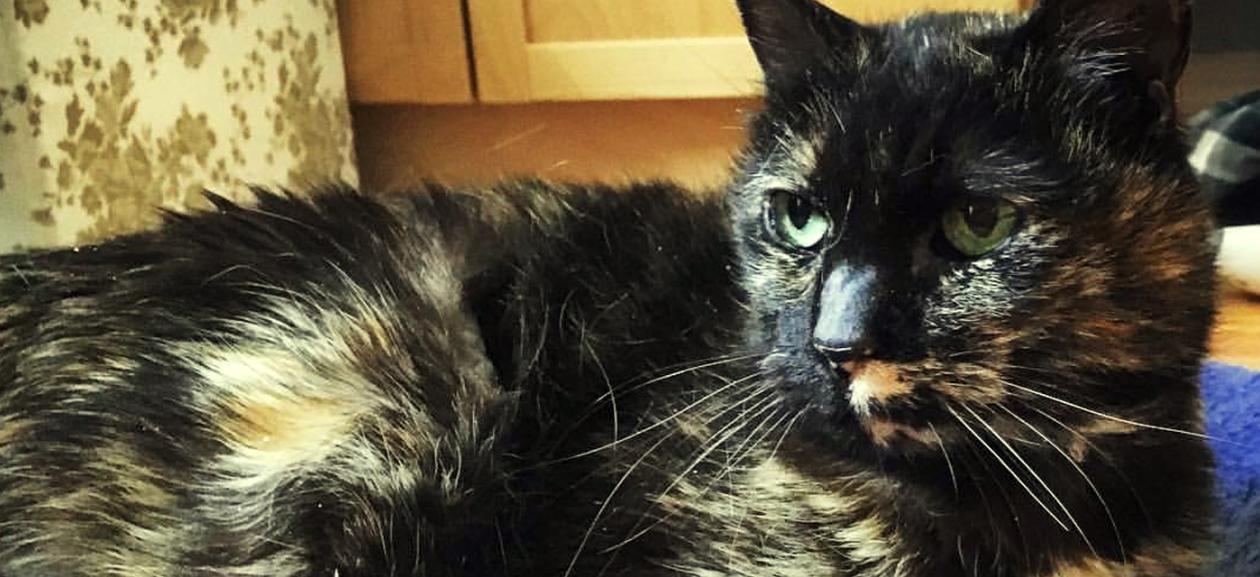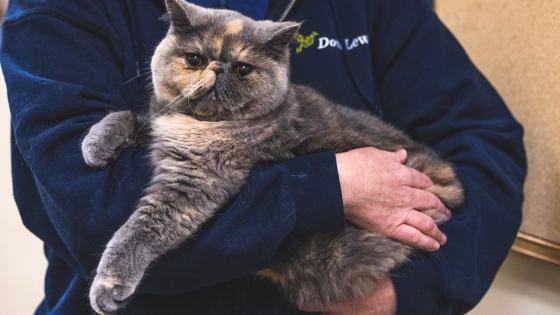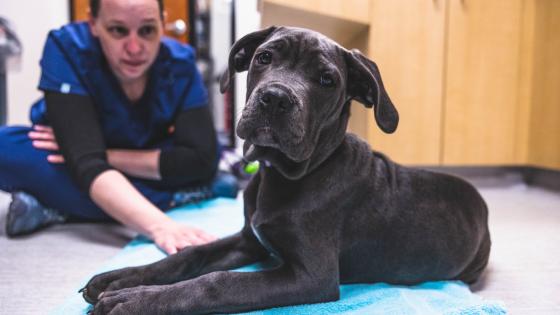
The New Normal: Living with an Elderly Cat
As the lifespan of cats continues to increase, thanks to nutritious food, indoor living and advancements in veterinary medicine, it is helpful for owners to be aware of the changes an elderly cat will experience. Dr. Erika Loftin, a critical care specialist and cat enthusiast at DoveLewis, shares advice on helping your cats stay healthy into their later years and live every moment to their fullest.
When is a cat considered senior or elderly?
In some aspects, cats go from adults to seniors around age 8 or 9. That’s when they often switch to a senior diet, they have more regular checkups and blood work, and veterinarians start to check for specific illnesses that are more frequent in older cats.
I don’t usually consider cats “old” until they are about 12 or 13. That’s when they might start to show physical and cognitive signs of old age.
What changes need to be made in a senior cat’s diet?
Most older cats should be eating food that specifically formulated for senior cats. These foods tend to have a different amount of protein and tend to be lower calorie to prevent obesity. Many cats who have specific conditions, like kidney failure or arthritis, might need something other than a generic senior diet. Your veterinarian can help choose the best food for your cat.
How often should a senior cat get checkups?
While it depends on the health of your cat, all senior cats should have at least an annual checkup (unless otherwise told by your veterinarian). Many people base their checkups on vaccines. However, a lot of vaccines are now going from annual applications to every three years. So, it’s important to continue scheduling an exam each year.
What injuries and illnesses are more common in senior cats?
In terms of life-threatening diseases, kidney failure is at the top of the list. Heart disease, cancer and hyperthyroidism are also common. You should look for signs of an increase in thirst and urination, as well as a decrease in appetite or a significant decrease in weight.
Some other issues include arthritis, which impairs their mobility and may result in obesity. Older cats can also begin to lose vision and hearing, just like older people.
How can you tell the difference between general signs of aging (lethargy, decreased mobility, etc.) and disease?
You can’t always tell. It’s true – older animals will have longer periods of sleep and they won’t play the way they did when they were younger. If they sleep a lot, but they still have moments where they are active and eating well, that’s probably normal aging. If they still don’t seem as normal as they should during their more alert moments, that would be concerning – particularly if their appetite is decreasing or they experience vomiting, diarrhea or an increase in urination.
Should you continue to encourage play as they age?
If your cat wants to play, go ahead and encourage the activity. Just be aware that they won’t have the same reserves, and they may get stiff and sore if they have arthritis. It’s fine if the animal seems to enjoy it, but keep the play to shorter periods of time.
What can you do to help with their decreased mobility?
If they are having difficulty getting onto furniture, you may need to build a ramp or make a bed for them on the floor. If your cat likes to sleep in your bed, you may even consider getting a lower bed frame.
This could also affect their litter box use. If the sides of the litter box are too high, it can be physically hard for them to get in and out. It can be helpful to get a litter box with low sides or even create one by cutting a hole in a giant plastic tub.
Are senior cats able to groom themselves properly?
Older cats tend to groom less, which makes their coat less soft and shiny or a bit flaky. There could be a few reasons for this. It could be partly cognitive – they just aren’t as interested in grooming. Or it could be physical – it’s might be hard for them to reach all areas if they are overweight or have sore joints.
It’s helpful if you brush them, especially long-haired cats, and use a warm, damp washcloth to clean off any urinary or fecal soiling. Some owners prefer to do cuts or shaves or take their cats to the groomer.
How well do senior cats interact with other animals?
If the cat has grown up with another animal, they are generally fine. However, I would be cautious when bringing a younger, friskier animal into the household. Younger animals may want to play more than the older cat does. You may need to supervise them when they are together or separate them when necessary. Older cats tend to be less adaptable, just like older people sometimes, and a younger animal might cause the older cat unnecessary stress.
What can we do to keep our senior cats healthy for as long as possible?
Keeping them indoors only is the best way to extend their life. Indoor cats typically live longer than outdoor cats. Catios are an option to offer fresh air and an outdoor experience without the risk.
As we discussed earlier, get regular checkups and blood work as recommended by your vet. Some diseases like kidney disease can be caught earlier with screening. Also, feed them a high-quality diet.
And watch closely for any changes in the behavior. Owners are very perceptive. They are likely to pick up on something troubling perhaps sooner than a doctor might at the annual checkup.
What behavioral changes might occur in an elderly cat?
They will sleep more and be less inclined to play. But they can actually have some cognitive changes, similar to an older person who develops dementia. They might forget where their food bowl is located, they might be less inclined to use the litter box, or they might wander the house at night meowing.
Should you see your vet if you notice these cognitive changes?
If it seems to be impacting their quality of life or your quality of life, you should. Your vet can screen them for obvious causes and to see if there are medications that might help.
How do you know that your elderly pet still has a good quality of life?
Determining quality of life is very individualized and subjective. My basis for my own cats is that they were still eating and still interacting with me. They might sleep 16 or 18 hours a day, but they would still interact with me and seem happy when they were awake. They will purr, chirp, sit on my lap and want to held.
Some indications that their quality of life is declining – pain that can’t be controlled with medications, a lack of appetite, breathing trouble, and if they are no longer interacting with you.
As veterinary care has gotten better, animals are living longer. So the focus needs to be on their quality of life. Luckily, there are a lot of things that can be done to support older animals.
Do you have an older dog? Continue reading to learn more about caring for your senior dog.



